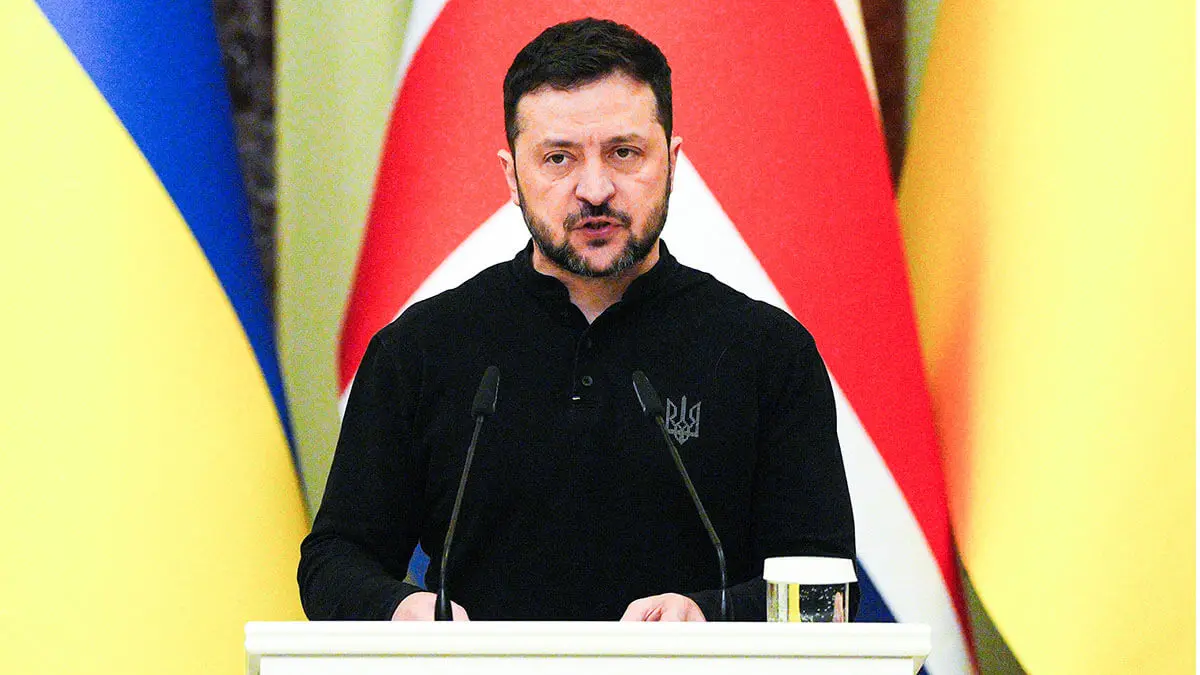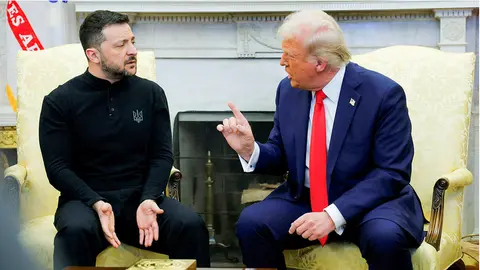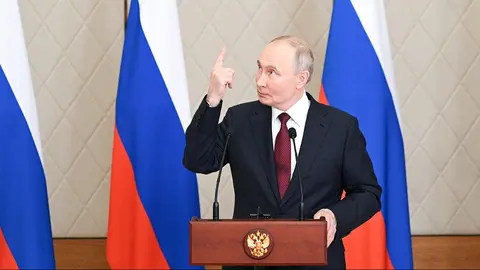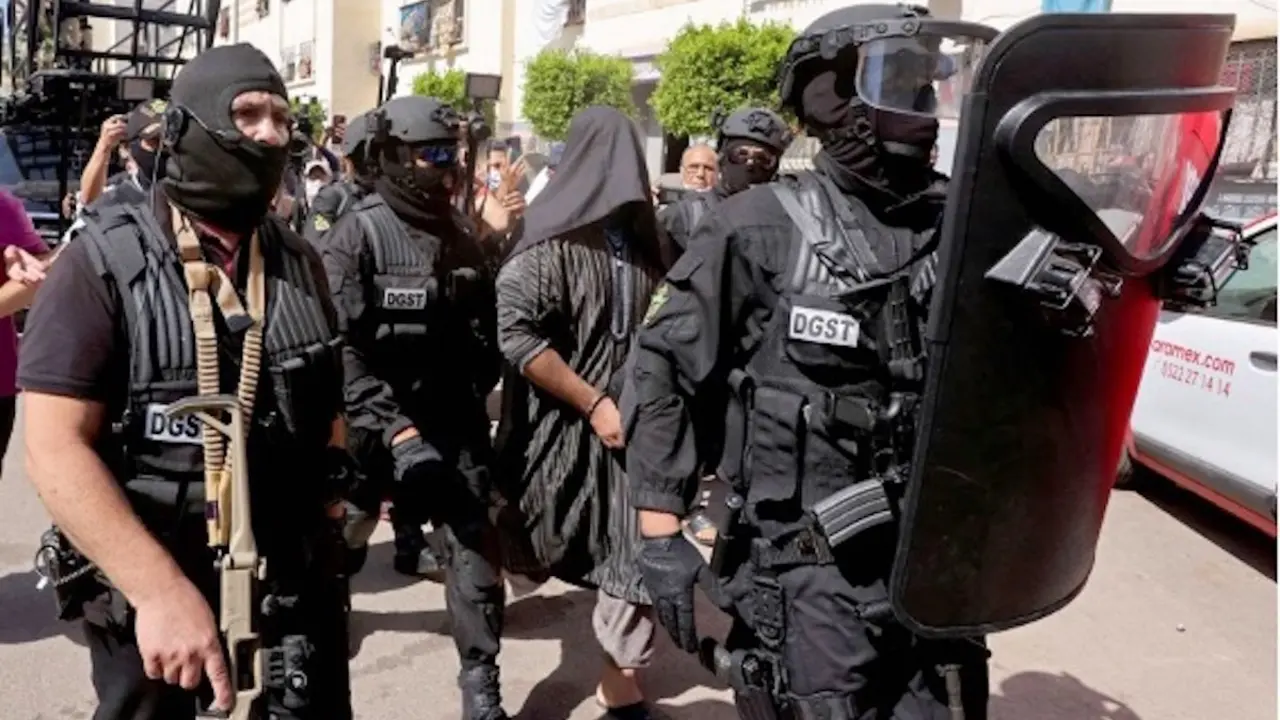Zelensky challenges Putin to meet in Turkey after Trump pushes for peace talks

Under intense international pressure, Ukrainian President Volodimir Zelensky has declared himself willing to meet personally with Russian President Vladimir Putin on Thursday in Turkey to negotiate an end to the war in Ukraine. The offer comes after a public intervention by US President Donald Trump, who demanded that Kiev immediately accept the Kremlin's proposal for direct talks.
‘I will wait for Putin in Turkey on Thursday. Personally,’ Zelensky wrote on his Twitter account, adding: ‘I hope that this time the Russians will not look for excuses.’ For his part, Andriy Yermak, Zelensky's chief of staff, quipped on Telegram: ’And what about Putin? Is he afraid?’
This statement comes after 48 hours of intense diplomatic activity. On Saturday, European leaders met in Kiev—including Britain's Sir Keir Starmer, France's Emmanuel Macron, Germany's Friedrich Merz and Poland's Donald Tusk—to demand an unconditional 30-day ceasefire starting on Monday, warning that if this did not happen, Russia would face new ‘massive’ sanctions targeting its energy and banking sectors.
Shortly afterwards, Putin responded with a counteroffer: to resume direct talks in Istanbul, without preconditions. In his televised speech on Saturday night, he said that these negotiations could represent ‘the first step towards lasting peace,’ although he avoided explicitly committing to a ceasefire.
From Moscow, senior Kremlin official Yuri Ushakov made dialogue conditional on a return to the terms of the 2022 peace framework and consideration of the current military situation, which in practice would mean accepting Russia's occupation of vast regions of Ukraine and a promise of neutrality from Kiev, something Ukraine rejects as tantamount to surrender.
‘President Putin of Russia does not want a ceasefire agreement with Ukraine, but to meet on Thursday in Turkey to negotiate a possible end to the massacre. Ukraine should accept this IMMEDIATELY,’ Trump said. In his view, even if the talks fail, they would serve to clarify whether peace is possible and allow Europe and the United States to decide on the next steps.
Starting tomorrow, we await a ceasefire — this proposal is on the table. A full and unconditional ceasefire, one that lasts long enough to provide a necessary foundation for diplomacy, could significantly bring peace closer. Ukraine has long proposed this, our partners are… pic.twitter.com/TVpJbldfh4
— Volodymyr Zelenskyy / Володимир Зеленський (@ZelenskyyUa) May 11, 2025
Despite doubts about the Kremlin's true intentions, Zelensky remains firm in his demand that any dialogue be preceded by an effective ceasefire. ‘We expect a complete and lasting ceasefire, starting tomorrow, to lay the necessary foundations for diplomacy,’ he stressed in X.
The last time Putin and Zelensky met was in December 2019. Meanwhile, direct negotiations between the two countries were suspended in March 2022 in Istanbul after a brief round that failed to produce tangible results. Today, more than three years after the start of the Russian invasion, the sides seem as far apart as they were then, although they now face renewed pressure both from the West and from the devastating effects of the war itself.
Calling President Trump together from Kyiv.
— Emmanuel Macron (@EmmanuelMacron) May 10, 2025
Our joint call: there must be a 30-day ceasefire starting Monday, unconditional, that paves the way for a solid and lasting peace in Ukraine. pic.twitter.com/MloOm6YYHj
Putin, so far reluctant to offer concessions, insists that the root causes of the conflict — including Western military assistance to Ukraine — must be discussed before any ceasefire. His Foreign Ministry has made it clear that they will not accept what they consider ‘ultimatums’ from Europe or Kiev.
Meanwhile, the US embassy in Kiev has issued a warning about a possible large-scale Russian air strike in the coming days, adding urgency to calls for a truce.










